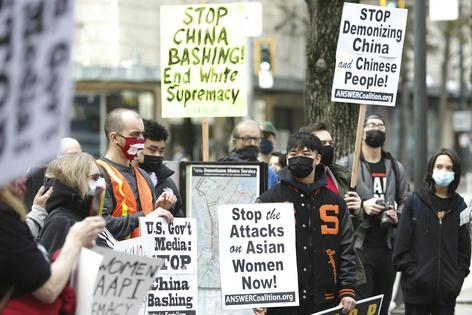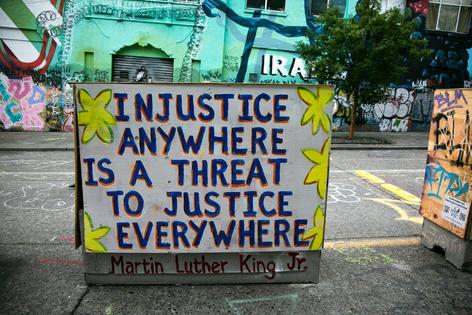What cities can learn from Seattle’s racial and social justice law
Published in Political News
The right-wing political campaign against diversity, equity and inclusion policies taking place in several states across the U.S. has called into question the nation’s commitment to achieving racial equality.
In this landscape, Seattle is marking a milestone of sorts – the first anniversary of adopting its Race and Social Justice Initiative ordinance.
This ordinance, signed into law in April 2023, places the Race and Social Justice Initiative under the Seattle Office of Civil Rights and states that all departments in city government are responsible for “implementing change toward ending institutional racism,” which is defined in Seattle as “policies, practices, procedures, and culture of an institution or system that work better for white people and cause harm to people of color, often inadvertently or unintentionally.”
This ordinance highlights race and racism because of the pervasive inequities experienced by people of color in Seattle.
In 2021, for instance, according to an analysis by the nonprofit Prosperity Now, the median household income in Seattle for white people was $96,333. This was as much as 1.5 times higher than the median incomes of Asian households at $77,470 and Latino households at $64,240. The white household income was as much as three times higher than that of Black households at $39,936 and Native American households at $31,519.
Other cities have adopted equity-focused policies for specific programs related to housing access or police conduct, for example. Seattle stands out for passing a citywide ordinance to address institutional racism.
Based on our current and recent research as scholars of urban policy, Seattle’s race and social justice law offers critical lessons for other cities looking to create more equitable places. It’s our belief that more commitments like Seattle’s are needed if the U.S. is to make substantive progress on racial equity.
Seattle’s persistent racial wealth and income gap – and its impact on housing, health, education outcomes and other significant social components of daily life – was part of the reason that Seattle officials launched the Race and Social Justice Initiative 20 years ago.
Then-Seattle Mayor Greg Nickels called for the development of the initiative after learning more about how race impacted people’s experiences in Seattle.
A report from the Civil Rights and Labor History Consortium at the University of Washington shows a lingering disparity in the homeownership rates between white households and people of color in King County, where Seattle is located.
...continued













Comments